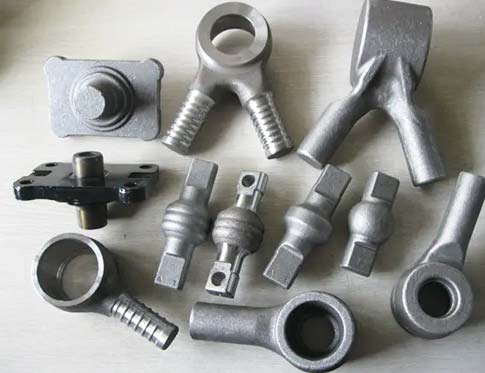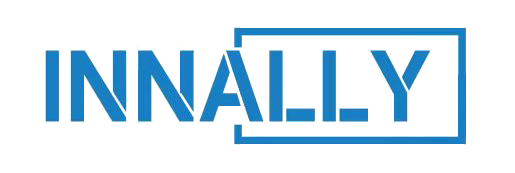- Contact Innally, Let you purchase forgings in China more favorable prices, products more assured!
- Hotline:+(86)15038323776 Email:innally@innally.com
How to choose the right crane forgings to meet engineering needs
- Category: Thermal forging, Titanium alloy forging
- |
- Date: 05/12/2023
the selection of suitable lifting machinery forgings to meet the engineering needs needs to consider the engineering needs, forging types and characteristics, materials and performance, quality and safety, cost effectiveness and professional advice and suggestions. Through comprehensive analysis and evaluation, the lifting machinery forgings that are most suitable for engineering needs can be selected to ensure the smooth progress and safety of the project.
Product Details
Hoisting machinery as an important engineering equipment, its forging selection is very important. Choosing the right forgings can not only ensure the safety and efficiency of the lifting machinery, but also meet the specific needs of the project. This article will discuss how to choose the right crane forgings to meet the engineering needs, and provide some practical suggestions.
First, clear engineering requirements
Before choosing the right crane forgings, we must first clarify the specific needs of the project. This includes the use of lifting machinery environment, working conditions, load requirements, frequency of use and other factors. Different engineering needs will put forward different requirements on the material, strength, wear resistance and other aspects of forging. Therefore, before selecting forgings, a comprehensive analysis and evaluation of engineering requirements must be carried out.

Second, understand the type and characteristics of forgings
There are many types and characteristics of lifting machinery forgings, including hooks, rings, chains, slings and so on. Each type of forging has its specific uses and advantages. In the selection of suitable forgings, it is necessary to understand the structural characteristics of various forgings, bearing capacity, connection mode and other aspects of information. For example, the hook has the characteristics of simple structure and convenient use, which is suitable for various lifting occasions; The chain has high strength and wear resistance, which is suitable for heavy load and harsh environment lifting operations.
Third, consider the material and performance
The material and performance of forgings is one of the key factors to choose suitable. Common forging materials include carbon steel, alloy steel, stainless steel and so on. When selecting the material, it is necessary to consider its strength, toughness, corrosion resistance and other performance indicators. Different materials will have different performance under different engineering needs. For example, carbon steel has high strength and toughness, suitable for general lifting occasions; Stainless steel has excellent corrosion resistance and is suitable for lifting operations in wet or corrosive environments.
Fourth, focus on quality and safety
Quality and safety are crucial considerations when choosing crane forgings. Forgings that meet relevant standards and certification requirements must be selected to ensure their quality and safety. You can consult the relevant national or industry standards, such as ISO, ANSI, etc., to understand the manufacturing and testing requirements of forgings. In addition, you can choose a supplier with a well-known brand and a good reputation to ensure the quality and reliability of the forgings.
- Comprehensive evaluation of cost and benefit
When choosing the right crane forgings, it is also necessary to consider the cost effectiveness comprehensively. Different materials and types of forgings will vary in price, so cost-effectiveness needs to be evaluated according to the project budget and life cycle. In the choice of forgings, you can seek multiple supplier quotes, comparison and analysis, in order to choose the more cost-effective products.
- Consult professional opinions and suggestions
If you lack experience or expertise in the choice of lifting machinery forgings, you can consult the opinions and suggestions of professionals. You can exchange and communicate with lifting machinery manufacturers, engineers or related industry experts to understand the latest technology and application trends to obtain more accurate selection guidance.
To sum up, the selection of suitable lifting machinery forgings to meet the engineering needs needs to consider the engineering needs, forging types and characteristics, materials and performance, quality and safety, cost effectiveness and professional advice and suggestions. Through comprehensive analysis and evaluation, the lifting machinery forgings that are most suitable for engineering needs can be selected to ensure the smooth progress and safety of the project.
nannan
INNALLY website editing, to provide you with forging related information
Related Products
Search
Forging center
- Steel forgings
- Aluminium alloy forging
- Titanium alloy forging
- Stainless steel forging
- Copper forging
- Automotive forgings
- Locomotive forging
- Bicycle forgings
- Motorcycle forging
- Rigging and fasteners
- Bearing forging
- Electric power fittings
- Marine forging
- Mechanical forgings for metalworking
- Mining machinery forgings
- Marine engineering forgings
- Construction machinery forgings
Popular product

© 2025. All Rights Reserved.






